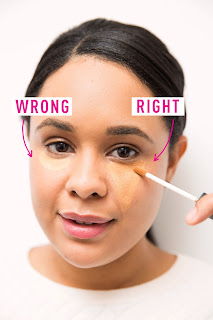What is it?
This is a pain syndrome that is described as persistent,
unexplained pain in the external female genital organs, including the labia,
clitoris and vaginal opening. It can affect women of all ages but usually start
in women younger than 25. Most sufferers are otherwise healthy and have no
history of STI. Vulvodynia is not contagious and has nothing to do with
personal hygiene. It is divided into 2 types
1. Unprovoked or generalised vulvodynia - this is vulva pain
that is constant or that comes on spontaneously. It occurs in different parts of
the vulva at different times. Touch or pressure may make it worse.
2.Pressure-provoked or vestibulodynia – this is pain in the
vulva or vestibule ( where the vulva meets the vagina) that comes on when these
areas are touched or pressure is applied, such as during sex or when inserting a
tampon.
What causes it?
The cause is not known but a few theories have been put
forward such as:
1.
Irritation
or damage of the nerves around the vulva
2.
Oversensitivity
of the nerve endings in the skin of the vulva
3.
Previous
vulva surgery
4.
Frequent
antibiotic use
5.
History
of sexual abuse
6.
Hormonal
changes
7.
Allergies
or irritation to chemicals
8.
Muscle
spasms
9.
Hypersensitivity
or yeast infections
10. Genetic
factors that make the vulva respond inappropriately to chronic inflammation
11.
Abnormal
response in vulva cells to an infection or trauma
What does it look like?
The symptoms have been described as burning, stinging, rawness,
aching, soreness, throbbing and itching. Some women have described the pain as
knife-like or like acid being poured on the skin even though the outward appearance
of the vulva might look normal, although sometimes it might appear swollen and
a little inflamed. Vulvodynia symptoms can occur:
•All the time or just once in a while
•During activities such as exercise, intercourse, or walking
-- or even while at rest
•While bicycling, inserting tampons, or even sitting
•In one specific area or throughout your entire vulva
How can I get rid of without
meds?
There is no cure but there are some lifestyle changes you can
make to help prevent and relieve your symptoms
•Wear 100% white cotton underwear, sanitary towels and
tampons.
•Avoid scented hygiene products such as feminine wipes,
bubble bath and soap – an emollient, such as aqueous cream or e45 is a good
substitute for soap.
•Use petroleum jelly before swimming to provide protection
from chlorine.
•Avoid activities like cycling and horseback riding that put
prolonged pressure on the vulva.
•If sexual intercourse is painful, try to find a position
that is comfortable (many women find that being on top is the most comfortable
position).
•Try to reduce stress as high levels of stress can increase
the pain of vulvodynia
•Use dermatologically approved detergent and don’t use fabric
softener on panties.
•Use unscented toilet paper that’s soft and white or better still use unscented flushable toddler wipes..
•Avoid getting shampoo on the vulvar area.
•Avoid perfumed creams or soaps, pads or tampons, and
contraceptive creams or spermicides.
•Rinse the vulva with cool water after urination and
intercourse.
•Wear loose-fitting pants and skirts; don’t wear pantyhose.
Tried without meds but it’s still
there.
·
Local
anaesthetics – applying 5% lidocaine ointment to the vulva 10 minutes before
sex can make sex more comfortable. Beware, lidocaine can sometimes irritate
vulva, also if you are using a condom then wipe off the lidocaine before sex
because it can cause the condom to break.
·
Vaginal
lubricants and moisturisers.
·
Oestrogen
cream
·
Tricyclic
antidepressants – these have been known to give some women relief from their
symptoms but can cause drowsiness, constipation, weight gain and dry mouth as
side effects. Examples include amitriptyline and nortriptyline. They have to
be taken under medical supervision.
·
Anti-epileptic
meds like gabapentin and pregabalin.
·
Nerve
blocks
·
Interferon
injections
Copyright June's Secrets 2015

















